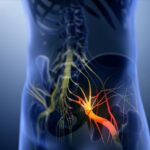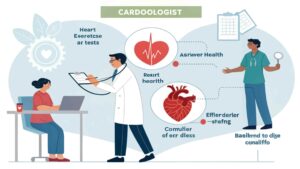Congestive heart failure occurs when the heart cannot pump blood efficiently throughout the body, leading to fluid accumulation and various symptoms that affect daily functioning. There are ways to manage these effects, including dietary modifications, planning physical activity, and understanding your symptoms. Here is more information on management approaches for individuals living with congestive heart failure:
Utilizing Dietary Modifications
Sodium restriction forms the foundation of dietary management for congestive heart failure symptoms. Excess sodium causes the body to retain fluid, which increases the workload on the heart and worsens symptoms such as swelling and shortness of breath. Reading food labels helps identify hidden sodium sources in processed foods, canned goods, and restaurant meals. Fresh foods typically contain lower sodium levels compared to packaged alternatives.
Fluid intake monitoring helps prevent excessive fluid accumulation that can worsen heart failure symptoms. Healthcare providers typically provide specific daily fluid limits based on individual conditions and medication regimens. Measuring fluid intake includes all beverages, soups, ice cream, and foods with high water content. Tracking fluid consumption throughout the day prevents inadvertent overconsumption that could lead to symptom exacerbation.
Exploring Activity Planning
Paced activity scheduling allows individuals to maintain physical function while avoiding excessive fatigue. Breaking larger tasks into smaller segments with rest periods prevents overexertion that can worsen heart failure symptoms. Planning activities during times of peak energy, typically earlier in the day, maximizes functional capacity while accommodating energy limitations.
Exercise programs designed for heart failure patients can improve functional capacity when prescribed and supervised appropriately. Walking programs typically begin with short distances and gradually increase based on tolerance. Chair exercises provide movement opportunities for individuals with severe limitations. Physical therapy evaluation helps determine safe activity levels and appropriate exercise modifications.
Understanding Symptom Monitoring
Daily weight monitoring serves as an early indicator of fluid retention changes. Weighing at the same time each day, typically in the morning after urination and before eating, provides consistent measurements. Weight gains of two to three pounds within a few days may indicate fluid retention that requires medical attention. Keeping a weight log helps identify patterns and communicate changes to healthcare providers.
Symptom documentation tracks changes in shortness of breath, fatigue levels, and swelling patterns. Rating symptoms on a consistent scale helps identify gradual changes that might otherwise go unnoticed. Recording activities that trigger symptoms provides valuable information for activity planning and medical management. Symptom logs assist healthcare providers in adjusting treatment plans.
Emergency symptom recognition enables prompt medical attention when conditions worsen. Sudden onset of severe shortness of breath, chest pain, or rapid weight gain requires immediate medical evaluation. Confusion, dizziness, or fainting episodes may indicate inadequate blood flow to the brain. Understanding when symptoms require urgent care versus routine follow-up supports appropriate healthcare utilization.
Learn More About Congestive Heart Failure
Managing congestive heart failure symptoms requires systematic attention to dietary modifications, activity planning, and symptom monitoring protocols. This comprehensive approach empowers individuals to participate actively in their care while maintaining the best possible quality of life within the constraints of their condition. Consult with a qualified cardiologist to learn which management methods are appropriate for you.















